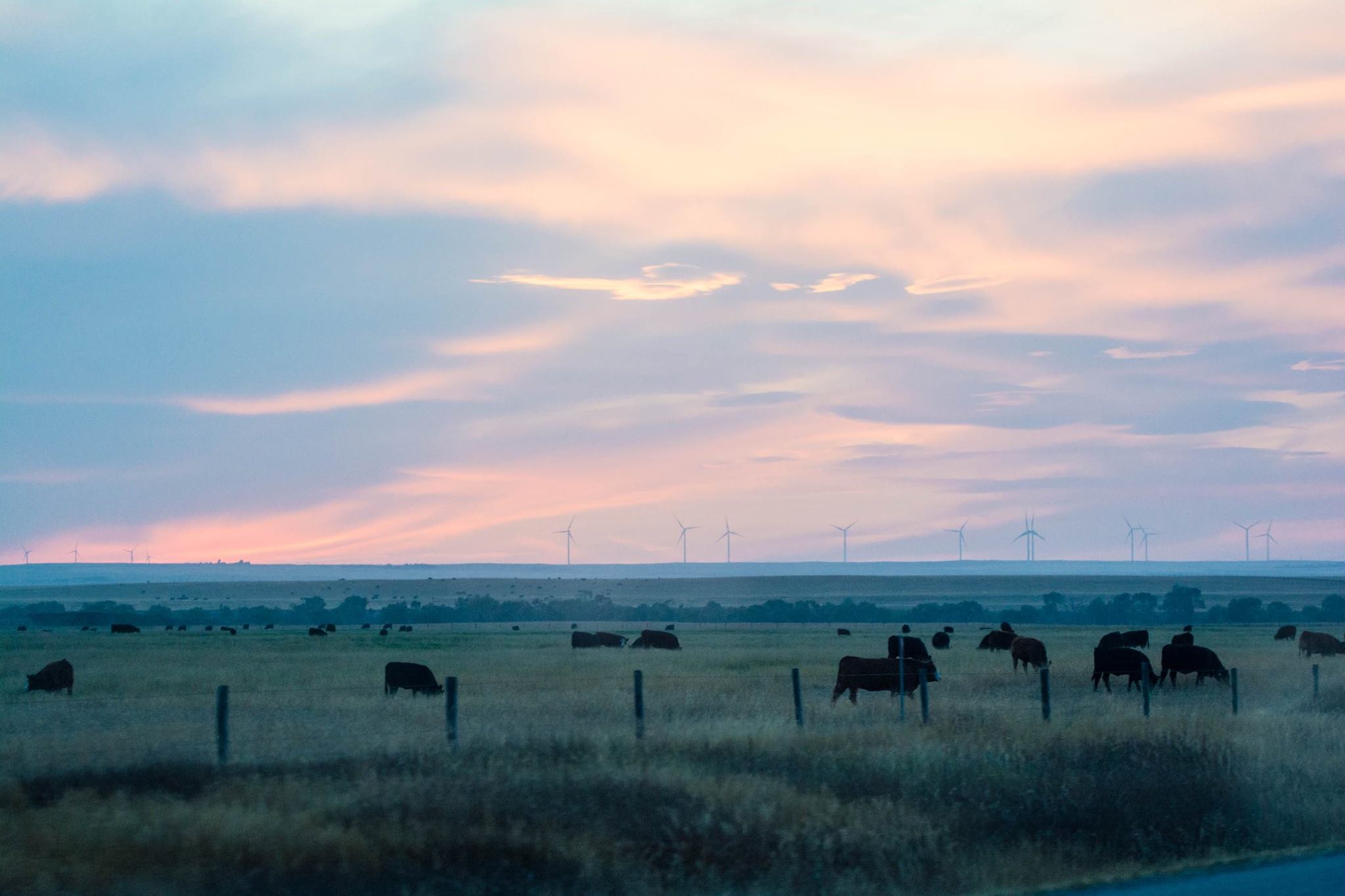Response to 'Yes, eating meat affects the environment, but cows are not killing the climate'

Two days ago, an American professor of Animal Science wrote a post in The Conversation, a platform designed for fact-based discourse, about why we are misattributing blame to the livestock industry.
A friend asked for my thoughts on it, and I wanted to provide a meaningful response. But because I've recently decided (because of the recently released IPCC report warning us of the implications of not limiting global warming to 1.5ºC) to be more vocal about a low- or no-meat diet, this turned out to be quite in-depth.
What follows is what my response, formatted for this platform.
Thanks. I’ve had a lot of similar topics on my mind recently and have decided to incorporate a full response to this article in a blog post.
In short, this is what I got from the author:
––––––––––––––
If there’s another major point I missed, please let me know. I'm going to respond below with mostly emissions-related arguments, but also include animal ethics perspectives too:
This is a question of quantifying emissions by sector and lifecycle emissions.
Indeed, categorizing emission sources carries numerous assumptions. The main one here is that transportation also carries numerous other goods.
For the record, I do not dispute the stated emissions:
The USEPA source is the same as they submit to the UNFCCC. In Canada, this was 25 MtCO2e in 2016, which represents 3.6% of our total emissions (Environment and Climate Change Canada, 2018).
But to put 25 MtCO2e into perspective, all of Alberta's fossil fuel electricity plants emitted 14.4 MtCO2e in the same time period (2016) (Environment and Climate Change Canada, accessed 2018-10-26). That's certainly not 'just a little'.
Lifecycle analysis is done to look at the overall impact of something. If the UN FAO and the Worldwatch Institute did a lifecycle approach, they are looking at the direct emissions and the emissions induced by livestock.
Yes, improving transportation efficiency will also reduce the lifecycle impact of livestock. But in the absence of livestock, there would be less transportation of livestock, their feed, and other goods that support them.
If we looked at the lifecycle analysis of transportation, it too would grow in size. It induces mining, manufacturing, and recycling/land filling. I’d be interested to see by how much (I’ll take a look).
A transportation lifecycle analysis would not include the agricultural sector but the opposite does have to happen. I.e. an LCA of the former would stop at considering how to feed drivers.
^see directly above. But in addition to that.. let's posit that transportation became entirely carbon neutral. Notwithstanding this being great for global emissions, livestock still have the following climate and environmental impacts:
a) water consumption
b) land use
c) food use
We use land to feed livestock that could instead be used to feed people (c) or to regrow forests that sequester carbon (b). Overall, for 2., I think it's easier to let forests reclaim land that we have turned into agricultural land while also improving agricultural efficiency, just like this author advocates (except to feed humans).
The author states "ruminant animals largely thrive on feed that is not suitable for humans" and that "as much as 70 percent of all agricultural land globally is range land that can only be utilized as grazing land for ruminant livestock", citing an FAO source.
I can't find the claim about 70% of land being only suitable for grazing, but I will take it as true anyways. In reading the FAO report, I also came across the following interesting tidbits relevant to this point.
––––
That FAO source acknowledges on page 41: "Land-use change is estimated to contribute 9.2 percent to the sector’s overall GHG emissions (6 percent from pasture expansion, with the rest from feed crop expansion)... They amount to 15 percent for beef production (linked to pasture expansion) and 21 percent in chicken meat production (linked to soybean expansion)."
Clearly, the same land use for additional soybeans to feed chickens could have been used to feed humans. Still, a more significant point is that reducing overall meat consumption can give us more land to reforest (like in Alberta). Canada's forests have become a net source of carbon dioxide due to human activity, fires, and pine beetle infections (both of which can be linked to human-caused climate change) (Natural Resource Canada, 2018).
Some have argued, and I agree, that managed forests (and also grasslands) could probably become a net carbon sink. "This analysis could not estimate changes in soil carbon stocks under constant land use manage- ment practices because of the lack of global databases and models... Permanent grasslands in the European Union represent a sink of ... 11.4 ± 69.0 million tonnes CO2-eq per year ... (equivalent to 3 percent (± 18 percent))." However, their data's uncertainty was too high.
––––
89: "Recent global modelling work led by FAO estimates that an annual carbon sequestration potential of 409 million tonnes CO2-eq is possible in just over one billion ha of the world’s grassland area (Chapter 5). In 46 percent of this area, this can be achieved by increasing both grazing pressure and grass consumption. And in a further 31 percent of this area, reducing grazing pressure was shown to increase grass production and consumption."
This is great, but I'm not clear on if the 409 MtCO2e measure is a net change. If it is, that's fantastic (and I assume this is per year). Global emissions are at ~50 GtCO2e/yr and this month's IPCC report stated we need to get to under 35 MtCO2e/yr by 2030. 0.4GtCO2e/yr sequestration would be a good contribution to the reductions we need – 2.7%.
But why can't the same result be achieved without needing to also eat the grazing animals?
Mitloehner acknowledged as such in their article, but did not address these matters and instead diverted to focus on criticizing transportation.
3. Technology/Practice Transfer
Ok, sure. Figures 27A and 27B make the point that the 'global south' could benefit from technology transfer. One of the three main themes in the Paris Agreement is to do this exactly, just like transferring other clean tech.
In fact, I would agree that it's a great sort of field for places like The Netherlands and Alberta to innovate and develop an economy. I have friends doing this exact thing, and I'm sure you do too.
I don't think it negates either of the previous points though.
–––––
The source that found shifting to removing livestock-for-meat entirely (not horses) would only net a 2.6% reduction in total US GHG emissions is interesting.
The section "Costs, GHGs and Exportable Nutrients for Human Diets With and Without Animals." doesn't really back up this claim. However, in "Livestock GHG Impacts", their model found that agricultural emissions could decline 28% (out of 49% attributed to livestock) because we would need to synthesize fertilizers, would grow other crops on land 'used by animals' (pastures?), and dispose of 'human-inedible byproduct feeds' (summarized in Figure 5; http://www.pnas.org/content/114/48/E10301).
It raises a good point about how fatty acids and vitamin B12 are not otherwise available without supplements, and we would likely have vitamin A deficiencies.
The original article that the Guardian piece cited states on page 521: "Changes in meat consumption dominate the impacts on GHG emissions, while for the other domains the environmental pressures associated with greater consumption of fruits, vegetables, nuts and legumes are more important but outweighed by the environmental benefits associated with lower consumption of meat, staple crops and sugar, and a generally lower energy intake in line with healthy body weights and recommended levels of physical activity."
It does not state how much the benefits of dietary change "outweigh" the induced behaviour. It does, however, tackle other means of improving fertilizing efficiency to reduce demand for more synthetic fertilizers.
Lastly, I'm usually not a fan of biomass energy, but I see no problem in converting biomass waste, like "human-inedible byproduct feeds", to biofuels (carbon-neutral aviation fuel is a similarly interesting topic) or for incineration in existing power plants.
In conclusion,
I see no reason why we can't collectively reduce our meat consumption. I recognize eating meat is part of many cultures around the world, but their impact is huge.
The threat of irreversible climate change and even worse effects are absolutely unacceptable. Millions of people will be displaced, conflicts will worsen, and we'll see chaotic ecosystem changes.
We really need to be doing ALL that we can and much faster than we have been. There are no silver bullets. Coal- and fossil-fuel- phase out, vehicle electrification, reducing meat consumption, and many innovations all need to part of our solution.
Eating less meat and seeking low-carbon transport (less driving and much less flying) are meaningful actions we can take as individuals. Why not try?

